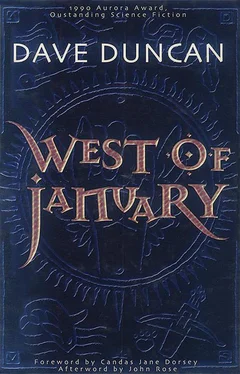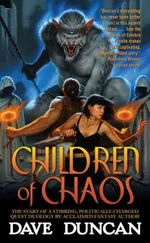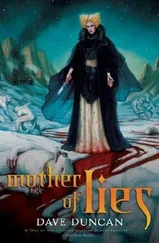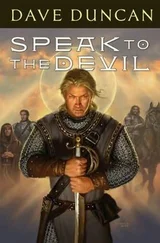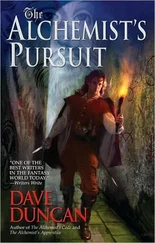Sparkle patted my arm. “All right?” she asked, her smile reassuring.
I nodded and smiled as best I could. Apparently great ones were harmless, but I was still quivering.
Pebble and young Sand and grizzled old Blossoms had now taken my place at the water’s edge; they were having an argument.
“Speak to the great ones,” Sparkle explained.
“They can do that? Really talk?”
She shrugged. “Sometimes works, sometimes not. Is difficult because don’t have real words. Also, often don’t want to talk—”
A head rose from the sea. It was Wheen, a female, Sparkle said. Apparently Pebble had won the argument, and it was to be done the way he wanted. He waved his hands to beat time. Then Blossoms began a string of deep booms, Sand made clicking notes in the midrange, and Pebble himself shrilled squeals in a painfully high falsetto. It was melody, not speech.
I could see fins and dark surges farther out, where other great ones flowed up to the surface to steal glimpses of the activity and blow plumes of spray.
The recital ended, Pebble rubbing his throat as if it hurt. Wheen snorted and responded with a roll of deep thunder beneath high clicking. The men tried again and were drenched for their pains. Wheen vanished, as if in contempt. Another great one—larger and closer—put his head up. It was Gorf again, Sparkle said.
The singers tried their harmony once more; Gorf’s reply was longer and more complicated. The audience began muttering querulously.
Sparkle was frowning. “Think says no river flowing out of this sea. Is one running in.”
Old Behold shouted from somewhere, “Flows out! Think not remember? Was long, hard, upstream.” A couple of the older folk agreed loudly.
“I’m not sure,” I said. “My angel did not say which way it ran.”
Pebble and Sand and Blossoms, intently conferring about their next message, were suddenly catapulted into the air as a great one jostled the platform beneath their feet. All three disappeared into the sea with ungainly splashes. The human audience yelled with laughter, and a few of the great ones raised their heads to make rude chattering noises. Then one of the largest of the males reared up with Pebble in his mouth. I cried out in horror.
“Is all right,” Sparkle insisted beside me. “Will not eat him.”
Up…up…rose the monster, only the upper half of Pebble visible. He was yelling and laughing and beating his fists on the huge snout. At the top of the leap, he was released with a motion halfway between tossing and spitting. He went spinning through the air, cartwheeling and still shouting. At the last moment he straightened and slid into the water without a splash. The great one balanced on his tail for a moment, then toppled backward to vanish in an explosion of spray. The sea-tree grove heaved and swayed.
Two more of the great beasts had emerged, bearing riders. Clutching the giant dorsal fins, Sand and Blossoms were being carried off into the distance in great bounding arcs, faster than a horse could gallop. I thought it must feel like riding a roo.
Then Pebble reappeared, this time upside down, head and arms and chest inside the great one’s mouth, legs kicking. Again he was lifted high and flipped even farther into the sky. Again he straightened before he hit the water. I was horrified by the dangers—if he fell badly he could break his back. It was a ridiculous game.
Then everyone was playing it. Men and women, youths and girls, all streamed off the platform to sport with the great ones, until only a few old folk and mothers with babies remained. The mossy shelf reemerged as the load decreased. I watched this mass insanity in rank disbelief. Any one of the great ones probably outweighed half of the seafolk, yet they were all mixed in there together in one mad watery roughhouse, sea and sky full of people and leaping sea monsters.
Then Pebble and another man were thrown skyward simultaneously, arching over a group of swimmers and narrowly missing each other. I shuddered and averted my eyes. An arm slid around me.
“Is foolish, yes?” said a tallish, young, close lady.
“Oh yes,” I agreed. “I’ve, ah—I didn’t catch your name?”
She moved even closer, smiling dazzling teeth and moist red lips. “Am Misty.”
“Am Raindrops,” said another voice, and another arm came around from the other side. Shorter and slightly plumper.
“Was first!” Misty said crossly. “Need rest now, Golden.”
I put my arms around both of them while I pondered. The mad romp was still proceeding with no sign of end or caution. Now that Misty had mentioned it, I realized that I was indeed staggering with fatigue.
“I do need rest,” I agreed.
“My bower!” Misty said.
Raindrops would likely have argued, but I spotted a kiss on her mouth before she could speak. “Yours next time,” I promised.
“Oh yes,” she said breathlessly, and I went off with my arm around Misty.
Apparently I had a real knack for making friends.
─♦─
Later I came to know the great ones better, although I could never join in their play as enthusiastically as the seafolk did, and I never quite understood the relationship between them. Many other peoples train animals and use them, as my father rode his horses. Some beasts, like woollies, are used but never trained. But no other people claim to talk with their livestock, as the seafolk do.
The great ones were not confined or tethered. They seemed to gain little from their association with humans except grooming, for the seamen cleaned parasites from their hides. Yet in return they carried the seamen on their backs to hunt fish, they towed boats, they caught seals or retrieved them, and they indulged in those wild watery romps. Indeed, the great ones usually seemed to initiate the play, so I had to assume that they enjoyed the sport as much as the human participants. That raised a question that worried me greatly—who was master and who was pet?
In Heaven I discussed the great ones many times with Saint Kettle. He had been born a seaman and he looked it—a massive, jocular tub of a man, with a coronet of snowy curls around a bald pate. He was also wise and learned, and I pressed him often to tell me how well he thought the seafolk could truly converse with the great ones. He would never quite commit himself.
“Are they intelligent, then?” I asked him once.
“The great ones? Of course they’re intelligent!” Then he sighed and added quietly, “But I’m none too sure about seafolk.”
THE GROVE FLOATED IN THE MOUTH of a wide bay between two ranges of hills that ran down into the sea to become islands. At about the time I arrived, the trees rooted themselves to avoid being washed ashore. There was some discussion among the seafolk over this, for they felt happier when their home was mobile. They could have cut the longest roots and then asked the great ones to tow the grove back into deeper water, but nothing was decided, and soon there were too many tethers in place to bother with. It was a pleasant location, all agreed, with a good stream of fresh water nearby. The watervines were not quite adequate, and even seafolk like to wash off the salt sometimes.
As he had promised, Pebble taught me to swim, although almost any child was better at it than I ever became. Then he took me hunting and taught me that also, riding on the backs of the great ones.
The procedure was simple. The hunter took net or spear to the water’s edge and sang his name. Only rarely was there no quick response. It was also possible to sing the name of a particular great one, but he would not always come to such a summons, even if he was in the neighborhood. Usually Pebble rode Gorf. I was never sure whether Gorf was his favorite or he was Gorf’s—probably the latter, for I was adopted by a young male named Frith, who came to my voice more often than any of the others did. He was very patient with my beginner’s shortcomings, but I soon learned the clicking sound that represented laughter.
Читать дальше
